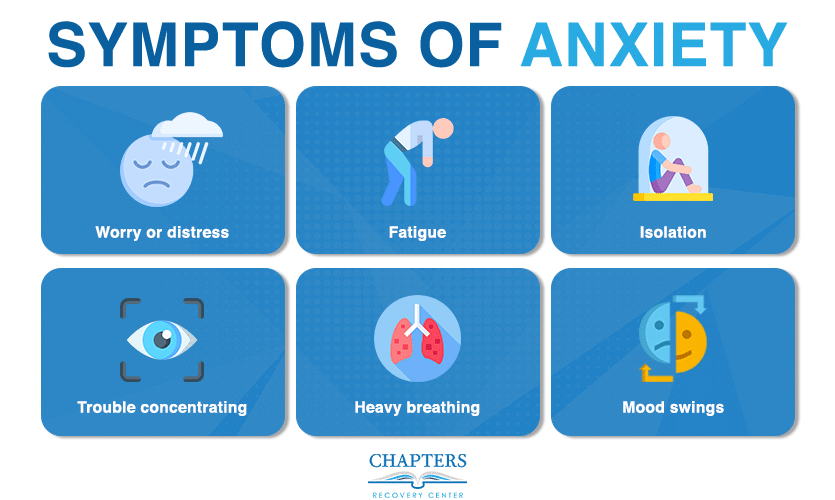There are many different ways to approach addiction treatment; everybody has their history and circumstances they’ve experienced. However, one could acknowledge that no matter where a person comes from, there are uniquenesses to gender-specific treatment; there are many benefits to this approach as well as many challenges.
At Chapters Recovery Center in Danvers, Massachusetts, our gender-specific rehab program focuses specifically on the unique issues and challenges faced by individuals with addiction based on their gender identity. Our variety of evidence-based treatments has proven to produce successful recovery outcomes.
What Is Gender-Specific Treatment?
Gender-specific treatment is a type of therapy that focuses specifically on the unique issues and challenges faced by individuals based on their gender identity. This type of therapy typically involves addressing issues, including the following:
- Gender Roles and expectations
- Violence against women
- Mental health concerns specific to women (e.g., postpartum depression)
- Sexual orientation identity
- Power dynamics in relationships
Gender-specific treatment may also involve exploring the influence of gender roles on an individual’s life decisions and actions. It provides a safe space for individuals to talk about their struggles without fear of judgment or stigma from society at large.
What are the Benefits of a Gender-Specific Rehab Program?
Gender-specific treatment is a form of therapy that focuses on the unique needs and experiences of individuals based on their gender. It helps to address issues such as gender-based trauma, identity development, socialization, and communication. One of the benefits of this type of treatment is that it can be tailored to suit an individual’s specific circumstances and needs.
It also allows individuals to discuss their experiences in a safe, nonjudgmental environment with someone who understands and respects their gender identity. Gender-specific treatment can help an individual better understand themselves and how they interact with the world around them.
Why Does a Gender-Specific Rehab Program Work So Well?
Gender-specific treatment can provide emotional support and coping strategies to deal with difficult situations and feelings of stress or depression. It can also help individuals build confidence and create a positive relationship with their gender identity and expression. Gender-specific treatment can be extremely beneficial in helping an individual lead a productive, fulfilling life.
What are the Main Challenges of Gender-Specific Treatment for Addiction?
There are many challenges to addiction treatment. This could have to do with life circumstances such as economic status, familial or professional circumstances, or even genetics. However, if one gets even more granular, there are challenges for both males and females in addiction treatment.
Do Drugs and Alcohol Affect Men and Women Differently?
Research has shown that men and women respond differently to drugs and alcohol. Men tend to use more substances, including alcohol, tobacco, marijuana, cocaine, and other illegal drugs like heroin. Women, on the other hand, are less likely to abuse drugs and alcohol but are more likely to become dependent on them.
Men seem to be more prone to using drugs and alcohol to get high, while women are more likely to use them as a way to cope with stress or anxiety. Men are also more likely to engage in activities related to substance abuse such as driving under the influence or engaging in risky sexual behavior. Women, however, may be less likely than men to take part in these activities due to social norms or potential stigma.
The reasons why men are more prone to substance abuse than women may vary. Biological and hormonal differences, psychological issues such as depression and anxiety, and social factors like peer pressure can all play a role in determining an individual’s risk for substance abuse. It is important to note that these factors may be more or less significant depending on an individual’s circumstances, and it is important to seek professional help if you feel that you need it.
In addition to seeking professional help, there are several measures individuals can take to reduce their risk of substance abuse. These include engaging in positive activities such as exercise, establishing boundaries with friends and family, and maintaining a strong support system. In addition to these is also gender-specific treatment. It is also important to educate yourself about the potential risks of using drugs or alcohol, so you can make informed decisions.
Why Does Addiction Affect Each Gender Differently?
Drugs and alcohol can affect men and women differently due to biological, psychological, social, and environmental factors. Physiologically, men typically have higher levels of enzymes in their liver that process alcohol faster than women. This means that it takes less for a man’s blood-alcohol level to become elevated and experience the effects of intoxication. In addition to this, studies have found that women tend to be more sensitive than men to the intoxicating effects of alcohol.
Psychologically, there are also differences between how men and women perceive and respond to drug and alcohol use. Women may be more vulnerable to developing substance abuse disorders due to factors such as stress, anxiety, depression, low self-esteem, and diet. Furthermore, women are more likely to suffer from the negative effects of alcohol use such as liver disease, high blood pressure, cancer, stroke, and heart attack.
In addition to the physical differences between men and women when it comes to substance abuse and intoxication, there are also gender-related social factors at play. For example, women are more likely to be faced with peer pressure to use drugs and alcohol than men. They may also face stigma for using substances due to societal expectations of proper female behavior.
Despite the physical and psychological differences between genders when it comes to substance abuse, there are still many similarities in the way people respond to addiction treatment. Whether male or female, addiction treatment often involves a combination of medication-assisted therapy and behavioral therapies such as cognitive-behavioral therapy (CBT) and dialectical behavior therapy (DBT). However, even if the methods may be similar, some need to seek gender-specific addiction treatment.
How is Addiction Treatment Different for Each Gender?
In gender-specific care, men might do the following:
- Experience positive male role models
- Meet female clinicians who model appropriate female-male relationships
- Explore sexual identity issues
- Learn to communicate more effectively
- Cultivate skills for managing difficult emotions
For women, the recovery experience may be completely different; it’s not uncommon for that to be the case. Women who have experienced verbal, physical, or sexual assault by a man may not feel safe discussing in a mixed-gender group. It may be easier for a woman to regain her sense of self-worth and value in a women-only program.
With the help of trauma-specific intervention programs, women can be supported in understanding the links between trauma and symptoms of trauma. These may include anxiety, depression, eating disorders, self-harm, and substance abuse.
Take the First Step on Your Road to Recovery Today
The first steps of recovery are always the most difficult. The familiarity of addiction and how accessible it has become is a difficult hurdle to jump. At Chapters Recovery in Danvers, MA, the goal of gender-specific treatment is to provide the utmost in individualized care; this includes providing gender-specific treatment options.
Learn more today about our gender-specific rehab program and how we can help you today! For more information, you can contact us here.






